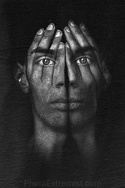 I’ve written an article for the Discover Magazine’s blog The Crux on what the DSM diagnostic manual is supposed to do.
I’ve written an article for the Discover Magazine’s blog The Crux on what the DSM diagnostic manual is supposed to do.
This is quite an interesting question when you think about it. In other words, it asks – how do we define mental illness – both in theory and in practice?
The article tackles how you decide what a mental illness is in the first place and then how you go about classifying mental states that, by definition, can only be experienced by one person. It turns out, classifying mental illness is a lot like classifying literature.
It also discusses the old and possibly futile quest for ‘biological tests for mental illness’ as if there is a perfect mapping between how we classify mental states and how the brain actually works at the neurobiological level.
So if you want to know the thinking and, indeed, problems behind one of the central and often unquestioned assumptions of psychiatry, this should be a good place to start.
Link to ‘What Is the “Bible of Psychiatry” Supposed to Do?’
One of the things I think needs to be done is a sanitation between psychological disorders and sociological disorders. You pretty much never hear about sociological disorders, even though it’s know that some psychological “disorders” actually only exist due to sociological context (e.g. situational ADD from bad school placement).
Psychology is willing to recognize “norms” of differences (e.g. “such and such should not be diagnosed if the ideas are typical of the culture the person comes from”), but is there any movement within psychology to recognize when the society itself has screwed someone over? IEP (individualized educational plans) go somewhat to addressing this issue in the larger culture (but only within the schooling movement). But I haven’t heard of any larger addressing of the issue. And I sure haven’t heard of IEPs being labeled as treatments for a disorder of the society.
Societies and cultures are made up of, and by, people. People with their own set of quirks and screw ups, which become quirks and screw ups of the larger culture. Why isn’t the effect society has on individuals acknowledged?